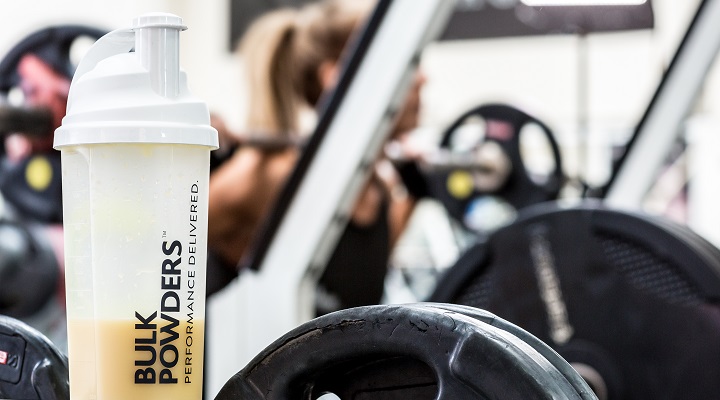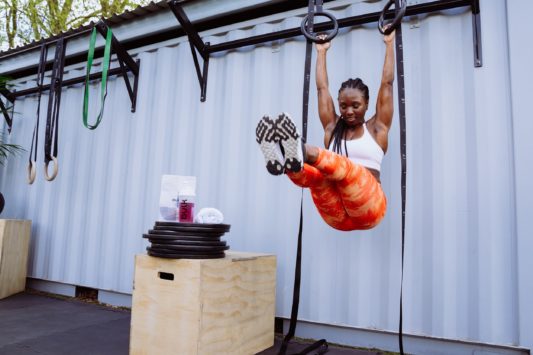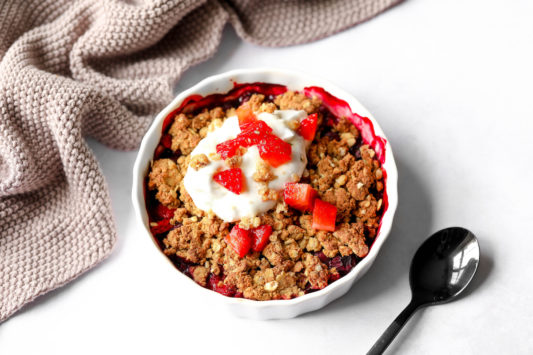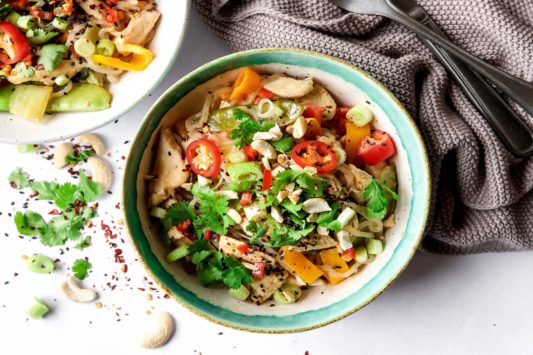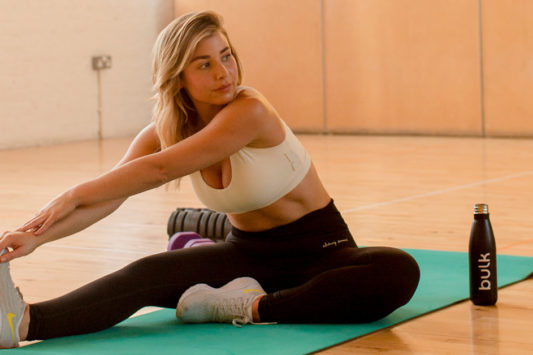It’s easy to get lost in the jumble of advice and information online. Nutrition doesn’t need to be complicated. Let’s get back to basics with 9 ways to simplify your nutrition.
Don’t obsess!
Good nutrition really isn’t that difficult (no matter what the internet gurus might have you think). The main challenge for most people is picking out the good advice from the bad, and then having the discipline to make good choices, and stick to one plan for the long-term. Keep it simple, don’t chop and change, and make choices that are sustainable to your lifestyle.
Get the basics right.
If you want to lose fat, eat in a slight calorie deficit, but reduce calories gradually. To gain mass, eat in a small surplus. Just looking to maintain? Then eat to support the amount of energy (calories) your body needs. Know your macros: protein, carbs and fats. Try to consume a portion of protein (at least 25-30g) at every meal or snack. And use carbs to support your energy output, whether that’s training, cardio or an active job.
Eat to support your goals.
It’s important to identify your goals (not your training partner’s, not your favourite physique model’s… yours). Once you know what you want to achieve from training, cardio, and nutrition, build a way of eating which support that. Eat more to support the exercise you do, but focus on quality nutrition from mostly real foods. Cook and prepare most of your own meals. You shouldn’t need to count calories, but it can be useful. The skill lies in being aware of how much you’re eating, and how it matches up to your calorie needs.
Cut out the crap.
Most of us already know when we can clean our diets up a little. There’s no need to completely overhaul your entire diet (it has to be sustainable, remember). Try making small changes instead. Reduce your sugar intake (1 sugar instead of 2 in coffee). If you’re in the habit of taking 2 biscuits with your mid-morning cuppa, take just 1. Find substitutes for common culprits. Love chips? Swap out your regular chips for oven chips, or homemade sweet potato chips (which are incredible with our Active Seasonings™!)
Learn portion control.
Trim portion sizes (it’s amazing how they can creep up in size over time) and eat until you’re satisfied. Save leftovers for a snack or a lunch/dinner later in the week. This will save you money, too!
Why are you eating?
Learning how to listen to your body’s cues is a skill which will help you stay lean for life. Eat when you’re hungry, and stop when you’re full. If you’re stuffed, stop eating. Identify times when you eat out of emotion, boredom, procrastination or habit (rather than hunger), and do something else instead.
Be mindful of liquid calories.
Yes, smoothies are great, taste amazing, and can be a creative way of getting your protein and nutrients in. But keep an eye on what’s actually in them. It’s very easy to consume a whole bunch of calories very quickly. Look at the whole, unblended versions of your smoothie ingredients. Try eating 2 bananas, a scoop of peanut butter, 1/2 cup oats, some Greek yoghurt and berries separately. Filling, huh! But chuck them in a blender, add some milk… and no problem! Smoothies, fruit smoothies, juice drinks and those fancy coffees can rack up the calories. Just be aware.
Eat fresh.
Cooking from fresh might take a bit longer, but cooking a meal from scratch with fresh ingredients doesn’t just taste great, it means you know exactly what you’re eating. No second-guessing ingredients, sauces, or sides. You know what you’re eating, cos you made it! Ready-made meals and takeout are convenient, but packed with more calories, fats and carbs than you need, and you’ve no idea what’s in the sauce, topping… or meat. Best to make your own and save eating out for special occasions.
Be smart with supplements.
Supplements are never a replacement for real food (the clue is in the name: supplement.) So once you’ve got the 8 habits above nailed down, it’s time to look to supplements as a convenient way to get missing nutrients into your diet (Greens Powders are a great way to do this), to meet your protein numbers (from Pure Whey Protein™, or maybe our Chocolate Whey Balls™ or High Protein Flapjacks), or to add extra nutrients like Maca Powder which are difficult to get from regular meals. Supplements should be about convenience, quality and cost-effectiveness. Start with food, then add supplements only where they will benefit your daily diet.
If you liked this article, you might also like:
>> Unlocking the Fundamentals of Nutrition: 7 Key Tips
>> Nutrition & Training Go Hand-In-Hand
About the Author:
Nicola Joyce has been writing for (and about) sport, fitness, nutrition and healthy living since 2004. She’s also a keen sportswoman: her background is in endurance sport but she now competes as a natural bodybuilder, most recently winning a world title with the INBF. When she’s not writing content, she can be found blogging. Follow her here www.nicolajoyce.co.uk and on Facebook & Twitter (@thefitwriter) too.
